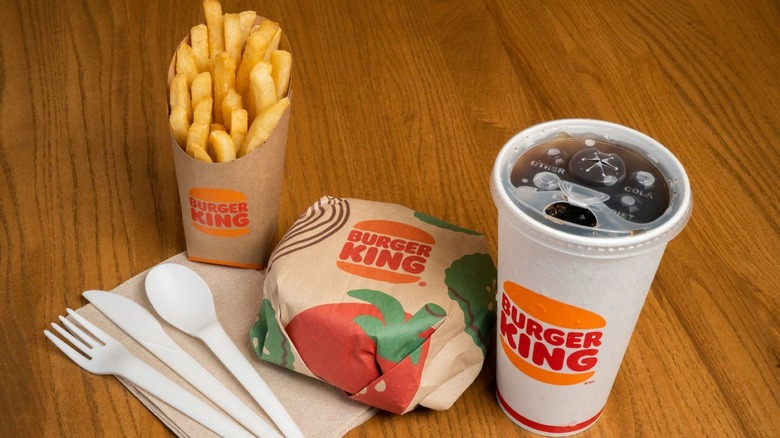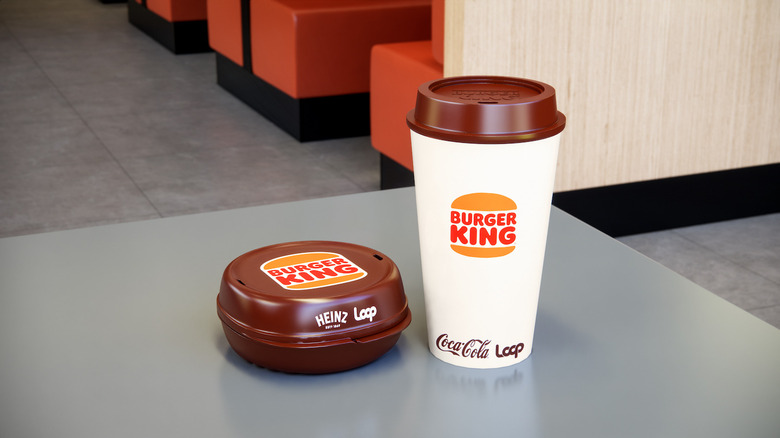This Big Packaging Change Could Be Coming To Your Local Burger King
Today, Burger King has launched a test for their latest initiative to render their business model environmentally sustainable. In a press release shared with Mashed, Burger King explained that in all 51 of their company-owned Miami restaurants, green packaging will be rolled out for their most used items, as well as alternative materials. The alternative materials include french fry containers made from renewable, unbleached paperboard, cutlery made from plant-based plastic, and napkins made from recycled fibers. Other actions include the removal of their old plastic straws, which could reduce emissions by 910 metric tons a year, or the equivalent of 196 vehicles driven for the same period, and new sandwich wraps for the Whoppers that use less paper, saving between 500 to 1,500 metric tons of the material throughout the United States.
This test will occur alongside the previously announced sustainability initiative Burger King has devised with Loop. As Reuters reported, that initiative (which was originally set to be carried out in New York City, Portland, and Tokyo) could allow the burger franchise to see whether a system in which customers can return plastic containers would function in a sustainable manner. The new press release does share that Paris and London will now also take part in the Loop trial program, which will occur later this year.
The point of these tests is to receive direct feedback from the customers who would be impacted by these new practices, and use that feedback as the basis for Burger King's decision to nationally implement these new packaging materials next year.
Will circular logic save the planet?
The existence of cPLA, or plastic made from plants, may raise some eyebrows. After all, plants and plastics do little more than alliterate in most imaginations. Polylactic acid (PLA), Treehugger explains, is fermented plant starch refashioned as a plastic alternative. While popular, PLA has yet to become as widely used as petroleum plastics, but they do biodegrade faster. According to Vegware, the affixed "c" indicates that it is a crystalized Polylactic Acid, meaning it can withstand higher temperatures.
The downside of this marvel is that PLA and cPLA still take a long time to biodegrade, meaning that simply switching to such materials will not truly solve the problems of plastics. That is why the other key component Burger King is exploring could prove important. By locking plastic products within a circular economy, fewer plastic goods have to be made, and thus fewer would be wasted. "Burger King has been leading the charge in foodservice sustainability and Kraft Heinz is excited to partner with them and Loop to offer reusable packaging around the world," Peter Hall, Kraft Heinz's President Away from Home, said, commenting on the collaboration between them, Burger King, and the Coca-Cola Company.
When the news first appeared, GreenPeace weighed in, stating that this initiative may provide a broader prompting to consider actual changes one could make to the plastic-heavy business model of the industry. If take-out is set to continue, it may look more like this.

